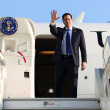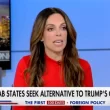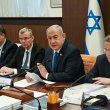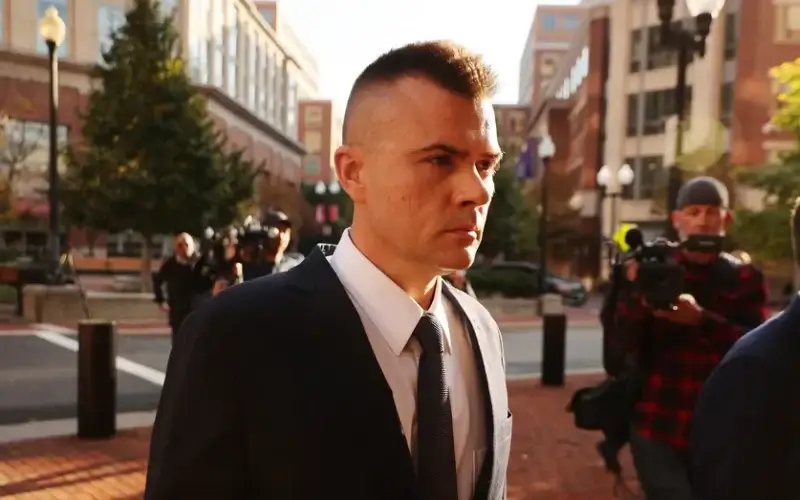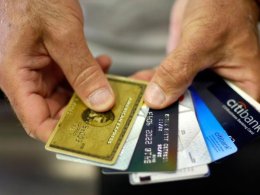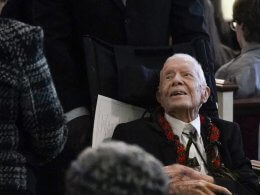During the second day of Special Counsel John Durham's case against Russia intelligence expert Igor Danchencko, testimony from an FBI supervisory intelligence analyst continued as both sides focused on the details of the facts around the charge of lying to the bureau.
Durham walked jurors through a series of emails to bolster his case that Danchenko lied to the FBI about gathering information in the agency's 2016 Russia collusion probe.
Some of the emails included separate conversations in late summer 2016 between Danchenko and various individuals, such as Belarusian-born businessman Sergei Millian, Millian's associate Dmitri Zloderev, and Democrat operative Charles Dolan, as well as discussions between Millian and Zloderev.
Durham used the emails between Danchenko and Millian, Danchenko and Zloderev, and Millian and Zloderev to show that Millian didn't contact Danchenko, nor did it appear in his emails that Danchenko claimed to have spoken with Millian on the phone or tried to meet with him in New York City in person. The prosecution is arguing that Danchenko lied to the FBI about a phone call he believed he received from Millian, from which he claimed that a meeting was scheduled to occur that the caller didn't appear for.
The defense argued that Danchenko could have received the call through a phone app (which wouldn't have appeared in phone records) and that Danchenko told the FBI in a January 2017 interview that he had deleted some related records. Danchenko's team also showed that Millian appeared to be in the U.S. around the time that the meeting was supposed to take place.
Danchenko faces five counts for allegedly lying to the FBI about his role in gathering information about then-GOP presidential nominee Donald Trump during his 2016 White House bid, as part of a federal investigation into alleged collusion between Russia and the Trump campaign.
The charges essentially state Danchenko lied or concealed sources from the bureau.
The first count focuses on whether he talked to Dolan about the dossier.
The other four are connected to a call Danchenko suggested he had with Millian, who at the time was serving as president of the Russian-American Chamber of Commerce, and whether information in the dossier was indeed from Millian.
"Danchenko never received such a phone call or such information from any person he believed to be," said Millian, according to the Durham indictment. "Rather, Danchenko fabricated these facts."
Danchenko has pleaded not guilty to the charges.
Durham on Wednesday presented the emails during FBI intelligence analyst Brian Auten's second day on the witness stand.
Auten on Tuesday disclosed the FBI offered former British spy Christopher Steele as much as $1 million to corroborate information in a Trump opposition-research dossier he compiled for the agency – and to which Danchenko was a primary contributor.
Among the emails presented were those between Danchenko and Dolan.
One email appears to show Danchenko reaching out to Dolan and saying he was working on a related project.
However, Auten told jurors that during a January 2017 meeting with Danchenko he did not mention Dolan's name when asked to reveal all the sources for his contributions to the dossier.
The defense team in opening arguments disputed the nature of Danchenko and Dolan's communications, seeming to argue whether they were not directly connected to the dossier fact gathering.
Other emails presented were related the four other counts regarding Danchenko's connection to Millian.
Emails show Danchenko attempting to contact Millian, giving him his phone number and email address. Another shows Danchenko contacting a third party in another attempt to reach Millian.
Durham's indictment claims Danchenko "never spoke to" Millian at all, which would support Millian's longstanding contention that he was not the source of any material in the dossier.
The prosecution on Tuesday argued that no such call was made, or at least no record of such a call exists.
The defense team said the call was made on an untraceable phone app.
The trial is being held in the U.S. District Court for the Eastern District of Virginia, Alexandria Division. It began Tuesday with jury selection and opening arguments.
Durham was appointed special counsel in 2020 by then-Attorney General William Barr to look into the origins of the Trump-Russia collusion investigation, particularly the conduct of FBI agents who worked on the probe, known as Crossfire Hurricane.
The trial is expected to last about a week, with Auten the first of four scheduled witnesses.
Presiding over the trial is Senior District Court Judge Anthony Trenga, appointed to the court by President George W. Bush.
This is the second trial in Durham's probe.
The first jury trial in Washington, D.C., in May, found former Hillary Clinton campaign lawyer Michael Sussmann found not guilty of lying to the FBI about information he had about alleged collusion.
In Durham's investigation prior to Sussmann's trial, former FBI lawyer Kevin Clinesmith pleaded guilty to falsifying a surveillance document during the Trump-Russia collusion investigation and received a sentence of 12 months of probation and 400 hours of community service.


